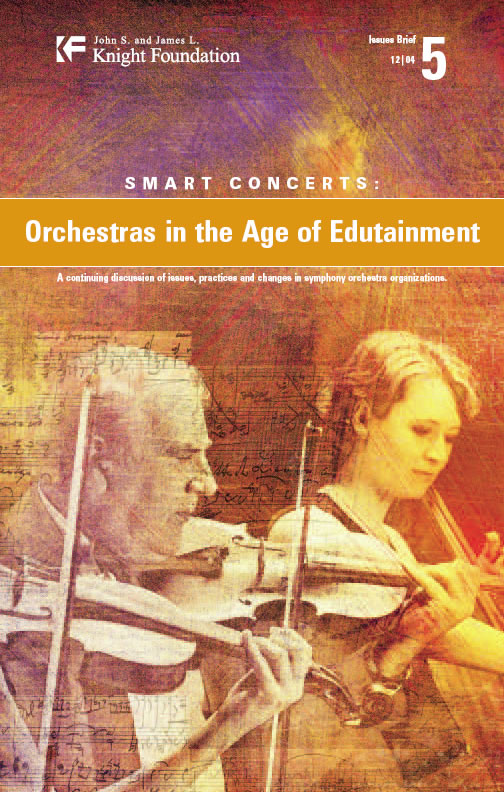Whether motivated by demand, philanthropy or a personal vision of something new, creative music directors, musicians and even a few marketing directors are slowly reshaping the 19th century orchestra concert into a 21st century leisure experience. What would happen if an orchestra invited its audiences — current and potential — to suggest ideas for performance themes that might respond uniquely to their community?
The Minnesota Orchestra learned the hard way about the perils of introducing new concert formats. In 2003, the orchestra decided to offer a Saturday night subscription series in a somewhat less formal, more interactive atmosphere, with brief introductions from the stage by orchestra musicians and visiting artists. Results from a survey conducted by the orchestra had indicated that “audience members overwhelmingly enjoy the speaking from the stage, and find it informative,” according to Gwen Pappas, a spokeswoman for the orchestra.
But on several occasions a lone member of the audience would boo loudly after the introduction in a time-honored display of displeasure usually reserved for opera singers who don’t measure up.
There were three vociferous objectors, the orchestra learned. And what they objected to wasn’t the welcoming message or the helpful insight, but the talking itself — a disruption of the familiar concert ritual, acted out night after night on countless stages around the world. “Don’t mess with my concerts!” they seemed to be saying, taking a position in a growing debate about the future of the concert experience.
More and more orchestras are rethinking how classical music concerts are presented and experimenting with new formats and unconventional programming in hopes of attracting new audiences. In doing so, they are running headlong into a controversy that pits the sanctity of the classical concert experience — the view that the music alone speaks for itself – against a swelling tide of evidence that many in the audience and, importantly, many who are not, want help becoming better listeners and would prefer a more informal, educational and interactive concert experience. Emotions run high on both sides.
This essay takes stock of what’s happening in concert halls around the United States. Four strategies for enhancing the concert are discussed: contextual programming, dramatization of music, visual enhancements and embedded interpretation. Examples are provided throughout. A concluding section summarizes what appears to be a seismic shift in concert programming and reflects on the implications for musicians, orchestras and audiences.
To set the stage for this analysis, let’s step back and first consider some relevant trends at the intersection of music and consumer behavior that might shed some light on the future of the live orchestra concert experience.
